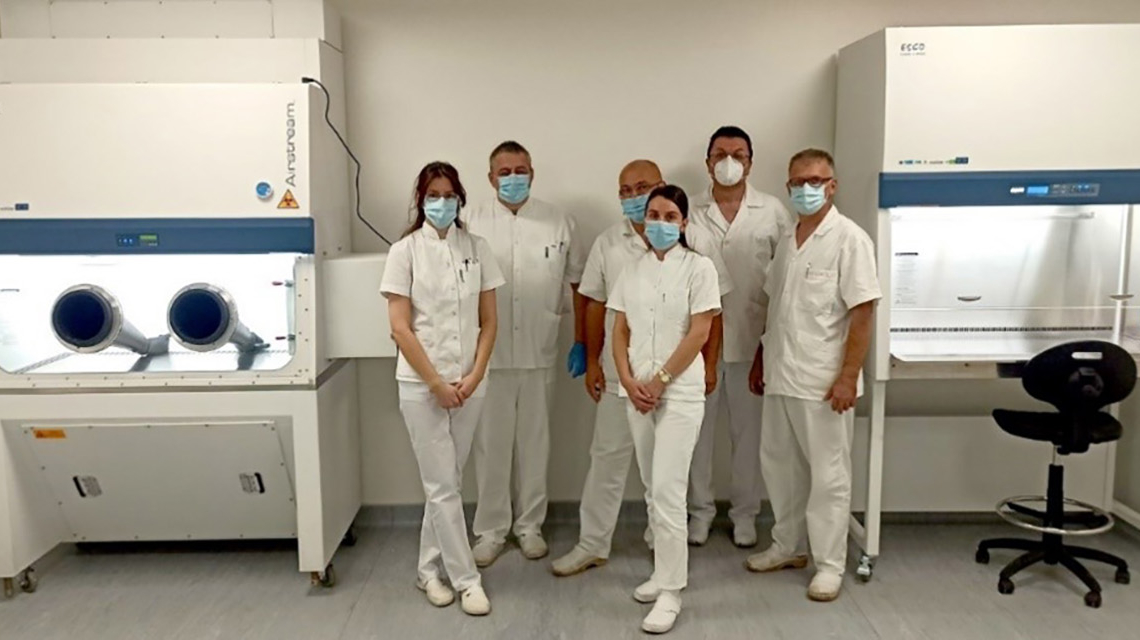The IAEA highlighted the tangible contribution that nuclear science and technology can make in helping countries meet their national priorities and commitments at the Science, Technology and Innovation (STI) Forum, a United Nations platform which encouraged close collaboration and progress between governments, civil society, the private sector, the scientific community and United Nations entities since 2016.
At a virtual IAEA side event on the margins of this week’s STI Forum, organized in cooperation with the Food and Agriculture Organization of the United Nations (FAO), through the FAO/IAEA Joint Centre of Nuclear Techniques in Food and Agriculture, a panel of senior representatives from national veterinary laboratories from Argentina, Croatia and Ethiopia, together with IAEA experts, gave an overview of the IAEA’s global COVID-19 emergency assistance activities, and addressed the role of nuclear science and technology in helping to meet SDG targets. Panellists discussed the origin and increasing frequency of zoonotic disease outbreaks and the role that nuclear technology plays in helping countries identify and monitor related threats. The national experts spoke of the challenges of shifting gear to respond to a public health emergency, and described the impact of FAO/IAEA support.
“While we were already accredited to detect zoonotic diseases, we had to adapt our existing lab to deal with emerging, airborne diseases to diagnose COVID-19 and actual strains,” said Lorena Jemersic, Head of the Virology Department at the Croatian Veterinary Institute. “IAEA support provided everything we needed to strengthen veterinary services for the diagnosis of the virus even when global demand was high.”
Tesfaye Rufael Chibssa is the General Director of the National Animal Health Diagnostic and Investigation Centre (NAHDIC) in Ethiopia, a long term participant in the IAEA technical cooperation programme. “With the fighting of the COVID-19 pandemic, we had to scale-up a project for Strengthening Veterinary Diagnostic Laboratories to an integrated action for zoonotic disease initiative,” Chibssa said. “The IAEA and FAO have helped us develop national and technical capacities to ultimately gain our ISO-17025 accreditation. This now enables us to host national and regional training courses, while also participating in the VETLAB network to exchange ideas and knowledge with other labs.” The VETLAB Network, created in 2012, is maintained by the IAEA, in partnership with the FAO.
Ana Maria Nicola, General Director of Labs and Analytical Control, Argentina’s National Food Safety and Quality Service (SENASA) agreed. “Our initial work with the IAEA and FAO on foot and mouth disease prepared our reference lab to properly test and compare the results of a huge number of samples,” she explained. “We now use this experience to quickly adapt, use our resources and build a network to obtain the same quality of results for different situations, such as COVID-19.”
The IAEA's extensive experience in addressing zoonotic outbreaks and transboundary animal diseases provides the foundation for a new initiative, the Zoonotic Diseases Integrated Action programme (ZODIAC). Launched in 2020, ZODIAC aims to enhance interactions between science, policy makers and society by promoting collaboration to identify risks and address outbreaks of diseases that pass from animals to humans, with the goal of ensuring universal access to solutions.
Showing the potential of nuclear and nuclear-derived technologies to the broader development community is the first step towards building partnerships and synergies to better support countries, especially in the developing world





